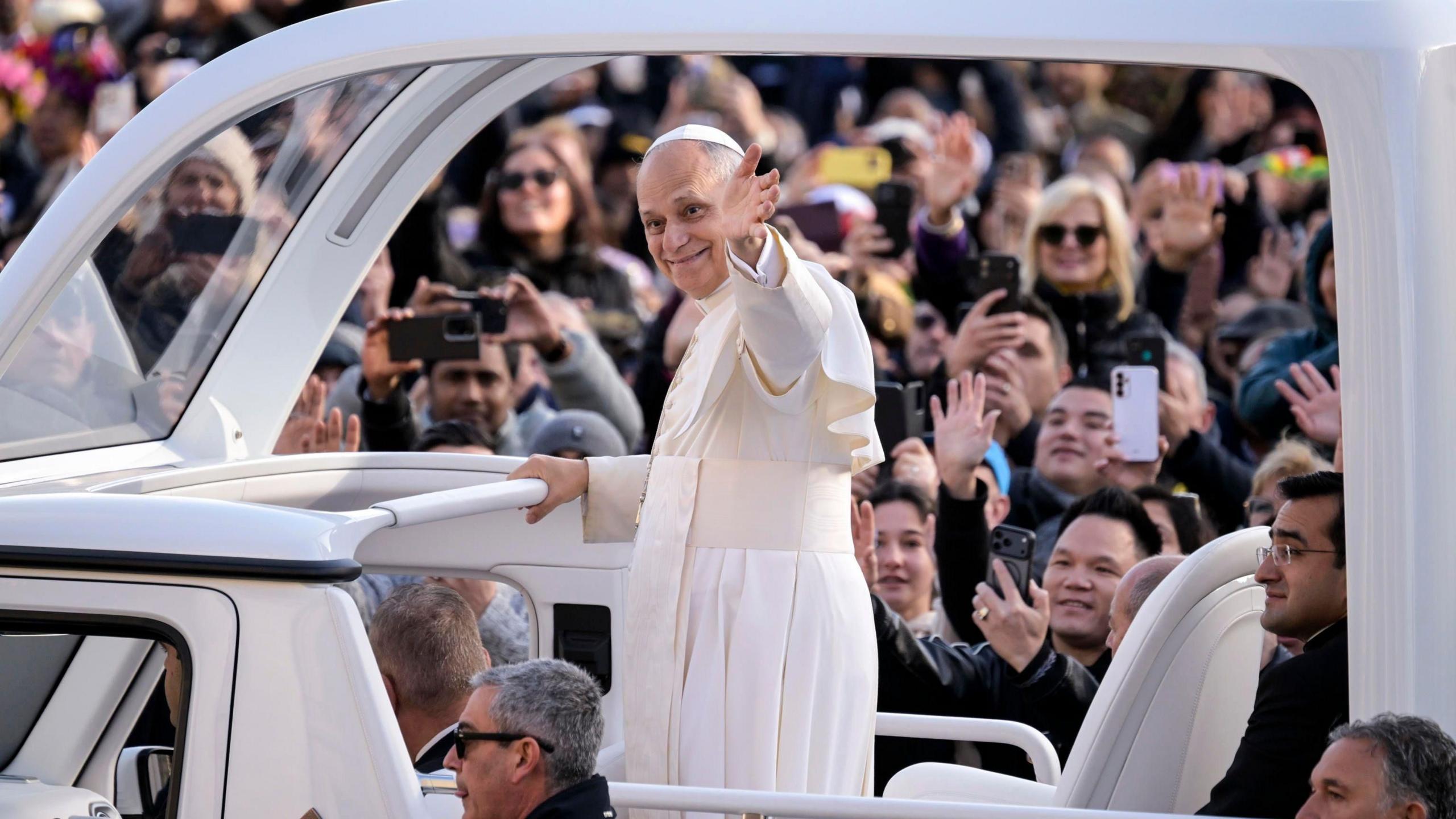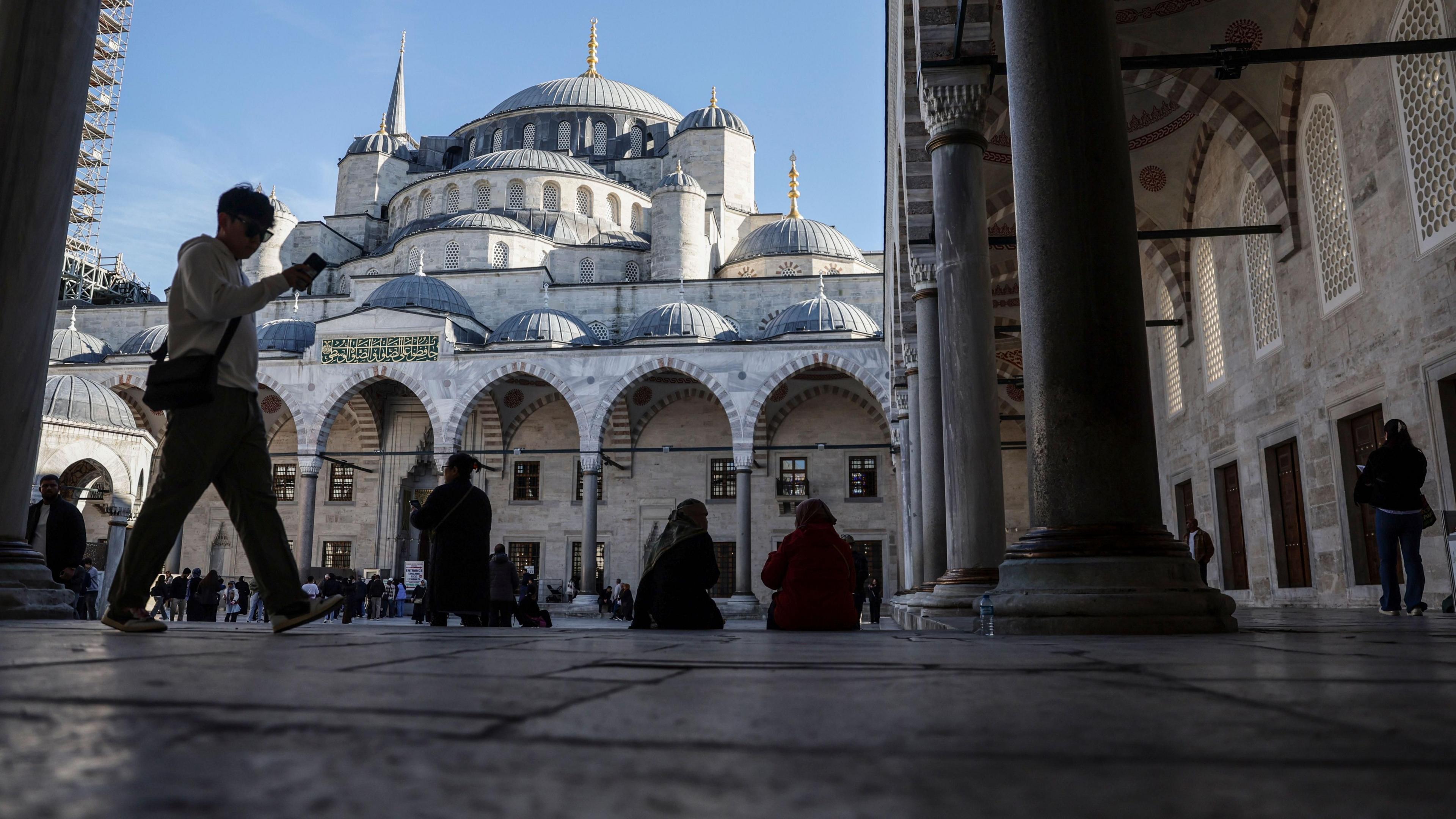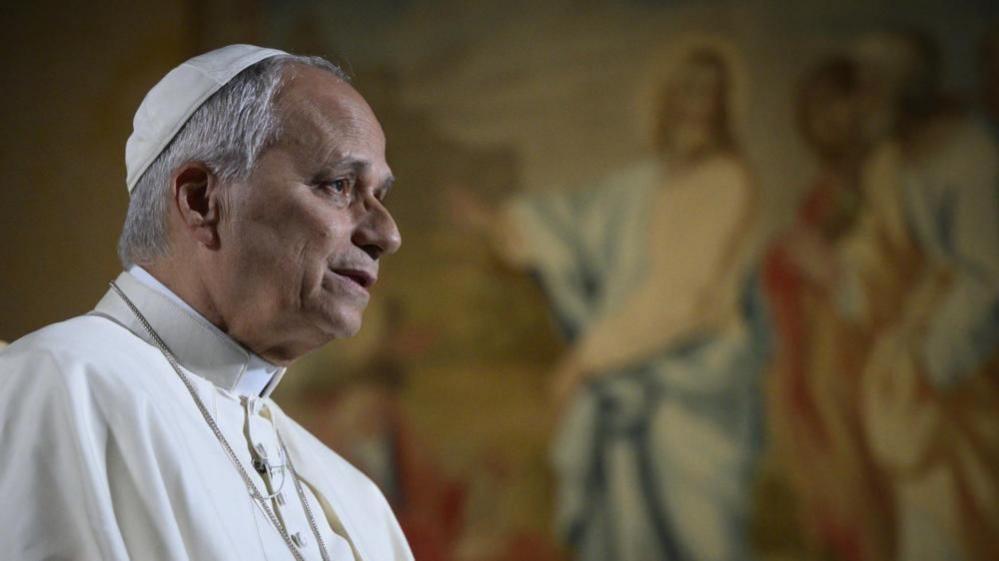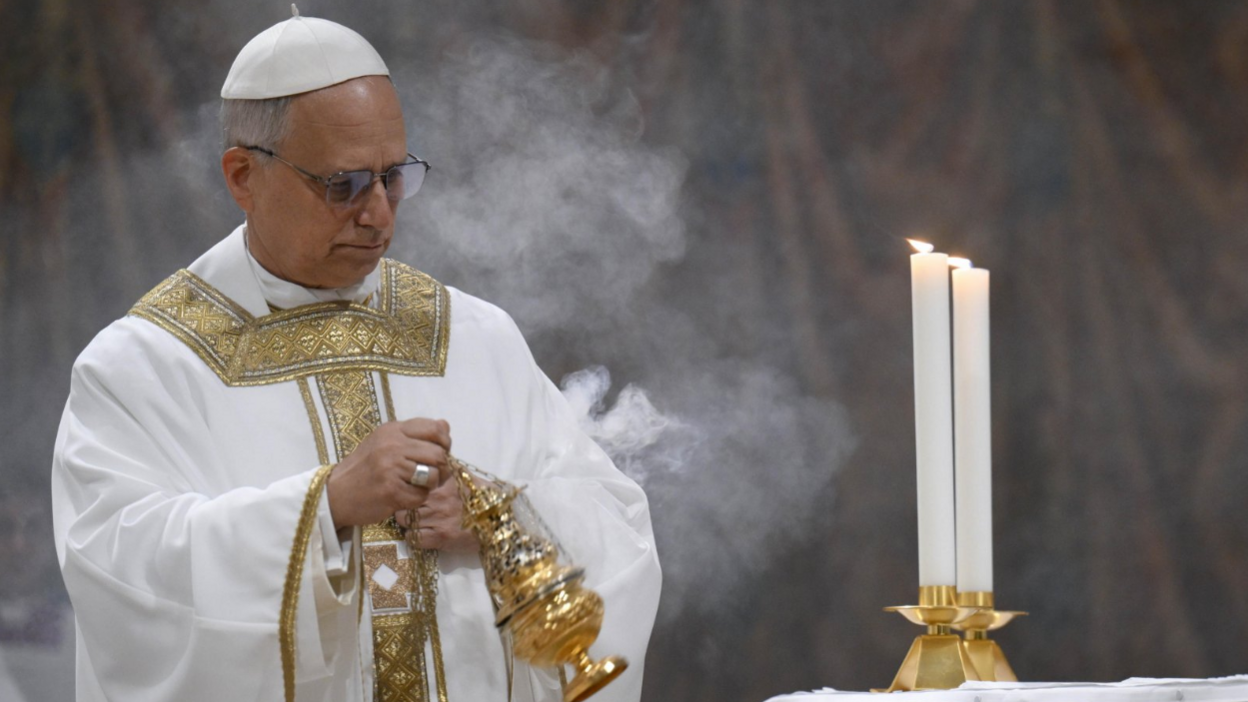Pope Leo XIV to visit Turkey and Lebanon in first foreign trip of his papacy

Pope Leo XIV will make his first papal trip overseas this week
- Published
Pope Leo XIV is beginning the first foreign trip of his papacy. Over the next six days he will first visit Turkey for an historic Christian anniversary. He will then visit Lebanon just days after Israeli airstrikes on its capital, Beirut.
Visits to both countries had originally been planned by the late Pope Francis, but the overarching theme – building bridges – is one Pope Leo has made his own from the moment he stepped onto the balcony of St Peters Basilica after his election in May.
In the first six months of his papacy, he has conveyed a sense of being extremely measured, even cautious. But on this trip, his powers of diplomacy will be closely scrutinised
A key moment of the trip will take place in the Turkish town of Iznik, the site of the ancient city of Nicaea. Pope Leo and leaders of other Christian traditions will gather to mark the anniversary of an ancient council that took place there 1,700 years ago. In 325 AD, among other key decisions, more than 200 bishops at the council affirmed the belief that Jesus was the son of God, eventually leading to what's known as the Nicene Creed.
Eastern and Western branches of Christianity later dramatically split, but during this trip there will be messages of togetherness and healing divisions.
In Turkey the Pope will also visit the Blue Mosque, as both his immediate predecessors Pope Francis and Pope Benedict XVI had done. He will have meetings with other religious leaders in a gesture of inter-religious dialogue before flying on to the second leg of the trip.

The Pope plans to visit the Blue Mosque in Istanbul
The Vatican says plans for the Pope's visit to Lebanon have not changed following the Israeli airstrikes on Beirut earlier in the week.
He will meet more faith leaders and hear from young people in Lebanon, his visit giving a boost in particular to the estimated third of the country that is Christian.
On the final day of the trip Pope Leo will celebrate Mass at the Beirut waterfront, at the site of the 2020 port explosion, praying for more than 200 people that were killed and around 7,000 who were injured.
Over recent months, though he has spoken out on some issues dear to him, like the dignity of migrants, he has certainly not been as overtly political as his predecessor could be.
He has walked such a fine line that in some cases both progressives and traditionalists within the Catholic Church have made the case that he supports their school of thought.
It was for similar reasons that cardinals of different persuasions were thought to have coalesced around him at conclave.
Pope Francis was seen as a visionary but one who was not overly worried about creating consensus, leaving behind a somewhat divided Church. Pope Leo has so far operated very differently, gently holding on to some of the progressive ideals of his predecessor while paying heed to the views of traditionalists.
He has repeatedly called for the end to war, but in a different way to Pope Francis, who memorably made daily calls to the Holy Family Church in Gaza to offer his support.
In meetings on this trip with Turkey's president, Recep Tayyip Erdogan and with Lebanese civic leaders, Pope Leo may be drawn to comment on his views on conflict in the region.
We may hear something of his impressions at the end of his trip, as it is customary for the pope to hold a news conference with travelling press on the return flight to Rome.
What we will hear more of this trip is a pope speaking in a Chicagoan accent.
Although Pope Leo, who speaks several languages fluently, has mainly given public addresses in Italian up to this point, the Vatican has confirmed that he will speak English throughout the Turkish leg of his trip, with some French too during his time in Lebanon.
Related topics
- Published5 days ago

- Published9 May

- Published10 May
